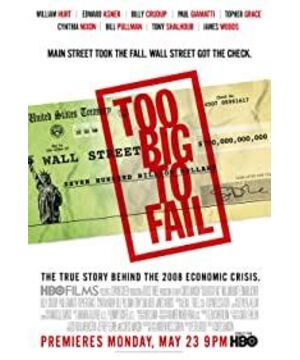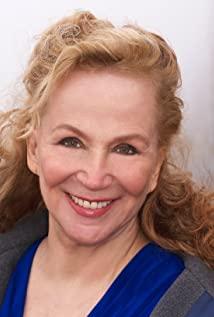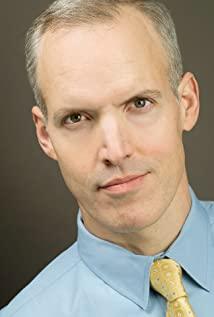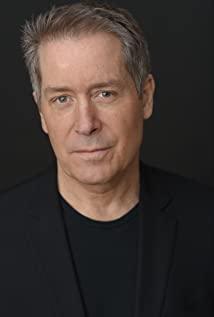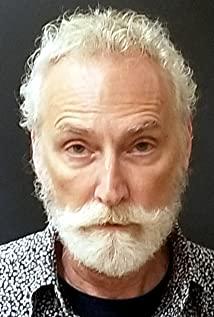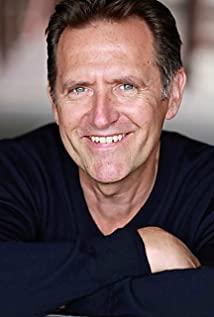Recently, I am interested in economic and financial knowledge, but I have always been a novice who does not hear anything outside the window, so I have to start from scratch and be confused. I read textbooks, read books, and of course watched some movies. However, in the face of the fast pace of financial movies, it is often confused and confused, even movies like "The Big Short" often get lost. But I just finished reading "The Great Game" recently. I felt that the events recorded in it were too numerous and I didn't make much progress. I didn't expect to read "too big to fail" after reading the memorabilia of the 2008 subprime mortgage crisis. A feeling that has been enlightenen! All of a sudden, I can almost understand what these elites in suits and leather shoes seem to be extremely busy with every day, speaking at a super fast rate! It can be seen that focusing on one area for a period of time is a very correct learning method, and quantitative changes will always accumulate into qualitative changes. When you find that knowledge starts to cross-validate, that feeling is really cool, suddenly it all start to make sense!
Another benefit is that if you see a concept or event that you don’t understand during the learning process, it doesn’t matter, record it as it is, and when you review your notes later, you may find that you already understand it! Or later you'll see another interpretation of the content elsewhere, and then you'll flip through your notes and compare them to each other, and you'll gain a whole new understanding!
Of course, the progress I am talking about is only in comparison with the situation where I used to be blind and ignorant. In fact, I am still a novice to professionals, at least with a lot of financial terms, big words and I still don't understand the acronym composed of n words... (This also shows that the film is relatively easy to understand and audience friendly. In Paulson's words, it is talk in English, speaking human...)
For the film, I still have many doubts. Let's display it below, I hope someone can see it and discuss it~
1. I can understand that some banks don't want to accept capital injections, after all, well-run banks don't want to give the public the impression that they are not doing well because of capital injections (that's why big banks accept it together, otherwise the public will judge which banks are in crisis) China), let alone the government interfering in their management, and even those banks that are on the brink of crisis, executives still don’t want to be regulated for capital injection (it will also affect their income, hehe…). But why did the Ministry of Finance regard capital injection as a taboo that cannot be mentioned in the first place? I googled it, and it is said that the government's nationalization of banks will cause many problems, such as management difficulties, difficulty in defining the degree of nationalization (banks that are not nationalized will be more difficult to gain public trust and savings, and then also difficult to operate, and then also Needs to be nationalized, leading to a domino effect), and Americans don't like the concept of nationalization, it can also affect the government's image, it's bad for elections, etc... So are these reasons?
2. According to the film, the government does not put forward any conditions when giving money, and it is a non-voting shareholder, so how do they affect the operation of the bank? If it doesn't affect it, why do banks still resist it? (However, according to the records of "the great games", a series of banking regulations were indeed issued, which also restricted the remuneration level of bank executives. I still don't know how this developed.)
[Follow-up: According to "Inside" Job” (guarding against one’s self-stealing) statement, the regulation introduced later still did not touch the substance, and did not limit the salaries of senior Wall Street officials. The Obama administration is only pretending to be in a state of laissez-faire. If this is the case, I can only say that it is very helpless. It is said in the film that the current US government is the Wall Street government, which is probably true. No matter who elects a lot of money, they should not want to offend the consortium.]
3. Press "The great games" that the only two remaining investment banks, Morgan Stanley and Goldman Sachs, were transformed into bank holding companies, and independent investment banks no longer existed? I still don't quite understand the meaning of it.
4. There is an interesting (possibly conspiracy theory) claim from "The First Book of Understanding the World", showing the following: Treasurer Paulson used to work at Goldman Sachs; the government already provided a lot of money They offered loans to curb market panic, but suddenly announced the takeover of "Two Houses", causing the stock prices of several major investment banks to plummet into crisis; in the end, the government stepped in to rescue the market, but it was too slow, causing the top five investment banks to lose three of them. Which undoubtedly implies that Paulson is not clear? But in the movie, apart from insisting on not saving the Lehman brothers (this can be explained as the government should not intervene too much in a market economy, and arbitrarily taking taxpayer money to save such a big conglomerate will undoubtedly cause public dissatisfaction), Paulson watched It is determined to save those big companies in distress. Personally, do you think conspiracy theories are a bit unreliable? But I don't know much about Paulson, and it seems that public opinion has a certain opinion on him... Then let me study it...
[After reading "Inside Job", a large number of government officials, consultants, academia, etc. in the economic sector, including Paulson, have various connections with these investment banks and other interest groups, and by serving as their mouthpiece and Opening and closing one eye and other behaviors earn extremely high commissions. In addition, Paulson sold all of Goldman Sachs shares before becoming Treasurer, but saved 50 million because of the tax exemption. . . Inside Job directly said that becoming Treasurer was his most important financial decision... um. . . My current view is that I still don't think it's his conspiracy theory alone, but that the entire stakeholder group has all rotted into pieces, "Anyway, everyone is making a fortune and is at ease, why should I act independently? Unpleasant facts and no money?!" So the film feels more from the government's point of view, beautifying this vested interest group with Paulson, Bennanke and other people's exhaustive images. Including the look in the eyes of Lehman's CEO when he saw the news that Merrill Lynch was acquired but his company went bankrupt (seems like?), it really made me feel bad, but thinking about what Inside Job and The big shorts said, Even when the company went bankrupt and investors lost their money (many workers' lifetime savings and pension funds), the executives took a fortune with no charges or arrests. Therefore, people like me at the bottom of the food chain are distressed by the lonely eyes of those who ignore ethics and drive private jets to live in mansions one day, are they sick? ]
5. When Lehman collapsed, the French Finance Minister called in annoyance, saying that the European economy was in great shock. Why did the British banking regulators reject Barclay Bank’s acquisition of Lehman? Just because they don't want to import cancer themselves, would they rather everyone die together? (And doesn't it mean that the acquisition part does not include the rotten mortgage part? Although this may not be true, it is estimated that the water is very deep...)
[This Inside Job also mentioned that it is the British banking regulator that requires the United States to issue a guarantee, and the United States refused to do so, so they walked away]
Well, most of them are problems that I can solve through research, so my problem is that my knowledge reserve is too small, especially for the current state of the world. In this self-encouragement, I will try my best to make up for the lessons that have been missed for so many years!
Let's talk about my impressions:
From the subprime mortgage crisis in 2008, people can indeed realize a lot. If this crisis is not handled well, it will be more devastating than the stock market crash of 1929, but in the end the world has survived, and it can be seen that the financial world is still growing through lessons again and again. In fact, it is not just AIG and big investment banks that are too big to fail, but our entire global financial market that is already inextricably linked. The film also shows through the plight of General Motors that not only the financial market is in the tsunami, but also the real economy is gradually affected, so the whole people's livelihood will collapse. Now it's really affecting the whole body. The collapse of one place may pull down everyone (especially the world's largest economic hegemon like the United States...), we just can't afford it, just as human beings can't afford it A world war armed with atomic and hydrogen bombs.
Another thought-provoking point of reading the history of finance is that the financial world is constantly strengthening supervision, becoming more and more ethical, managing elites, caring about civilians, and even helping competitors, but all of this is not the situation. How high the moral standards of the characters are, but also out of their common interests. In the business world, you may not die, but you can achieve mutual benefit and win-win results. Of course, both will be lost. Therefore, the most reliable restraint on people is to make them go to the norm out of the pursuit of personal interests. This is indeed the best outcome a game can lead to, and is why the invisible hand exists and works. (In fact, the natural world also forms a perfect ecosystem through mutualism, right? Don’t you think the world is really amazing?)
Since the 20th century, the world has really been turbulent, and the amount of change has been overwhelming. Transportation and communication have connected the whole world, thus giving birth to many huge and incredible economies and business empires, and completely breaking the pattern that everyone can fight independently in the past. And when a thing grows into a giant monster, it can no longer expand infinitely just for its own interests, it has to start to balance and coordinate with the environment more, or there is a danger of it being overturned at a critical point. Two days ago, I happened to have a random question. Is it true that the larger the animal in nature, the lower the reproduction number? (At least it seems so in our normal conception) So what caused this evolutionary result? Is it because large animals need more energy, so too many will destroy the ecological chain and eventually lead to their own demise? So they physiologically curb the high-number reproduction mode that harms others first and then harms themselves? If this is the case, the evolution of business empires follows the same path.
I feel that various disciplines will be interconnected, confirmed, and sometimes evolved into another discipline. For example, the study of physics becomes philosophy at the end, and the study of economics is psychology at the end (confidence, which is constantly mentioned in movies and books. This thing is elusive, but it is the key to spawning and repairing economic crises. ). I really want to sigh, "My life has a limit, but my knowledge has no limit." There are so many things waiting to be learned!
[After watching Inside Job, I think these two movies are biased. "Too big to fail" portrays a group of government officials who are worried about the country and the people, and turn the tide from their collapse, while "Inside Job" is critical, ruthlessly exposing the shameless faces of the entire interest group, and portraying them as Shameless, madly rich, and unrepentant guy. .
I originally saved four films about the financial crisis. At that time, I thought "Inside Job" was the cause, "Too big to fail" was to solve the endgame, "Margin Call" (haven't seen it yet) was from the perspective of the initiator, and "The big shorts" There are winners, but there isn't a movie from a loser's point of view, because there are countless losers all over the world. And now after watching Inside Job, it feels like it's designed to make accusations and shoutouts for losers. Of course, most of them also have a tendency to go overboard. Is there anything wrong with the Wall Street gang? Of course. But it would be wrong to say that they should take full responsibility. It is the nature of capital to pursue profit, and it is difficult to stand up to yourself against the trend. At any time in history, few people can do it, so such talents are precious. Therefore, the financial crisis should actually be a warning to make policies and supervision more perfect to prevent future disasters from happening again. (Of course, it seems that people still haven't learned from one slash to gain one's wisdom, which is very worrying for the future. In addition, since those "elites" have all withdrawn with huge sums of money, the sharp questioning in Inside Job can make They lose face in front of the camera, and they, who are usually eloquent in their speech, are considered to be in line with public opinion. Even if they are biased, it is understandable.)]
View more about Too Big to Fail reviews


